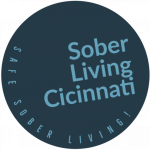Recovery is a journey that requires resilience, self-awareness, and the ability to manage life’s ups and downs without turning to substances. While there are many tools available to support sobriety, mindfulness has become one of the most valuable and widely used techniques for building emotional strength and improving coping skills.
Mindfulness is the practice of being fully present in the moment, without judgment. It helps individuals observe their thoughts, emotions, and physical sensations with clarity and compassion. In recovery, this awareness can be a powerful way to recognize triggers, reduce reactivity, and respond to stress in healthier ways.
Understanding the Role of Mindfulness in Recovery
Substance use often serves as a way to avoid or numb painful emotions. Whether it’s stress, shame, anxiety, or grief, using drugs or alcohol may have offered temporary relief from discomfort. Mindfulness teaches a new approach: rather than escaping pain, individuals learn to sit with it, observe it, and allow it to pass without reacting impulsively.
In recovery, mindfulness creates space between a feeling and a response. Instead of reacting automatically to a craving or emotion, mindfulness allows a person to pause, reflect, and choose how to respond. This skill becomes increasingly valuable when navigating everyday challenges, especially during high-risk situations or emotional lows.
Mindfulness doesn’t eliminate pain or cravings, but it changes the way we relate to them. Over time, this shift can reduce the intensity of difficult moments and help build confidence in your ability to handle discomfort without resorting to substances.
Building Emotional Awareness
Many people in recovery struggle with identifying and expressing emotions. Years of substance use may have disconnected them from their inner experiences. Mindfulness helps restore that connection by inviting curiosity about what’s happening in the mind and body.
Practicing mindfulness encourages individuals to check in with themselves—emotionally, physically, and mentally—on a regular basis. This increased self-awareness helps identify early signs of stress, burnout, or emotional overwhelm. With practice, it becomes easier to name and process feelings before they build into something unmanageable.
When emotions are understood and accepted, they become less overwhelming. This emotional awareness supports healthier communication, deeper relationships, and improved self-regulation, all of which are key components of sustainable recovery.
Managing Cravings and Triggers
Cravings and triggers are a natural part of recovery, especially in the early stages. What makes the difference is how they’re handled. Mindfulness allows individuals to observe cravings without acting on them. It teaches that urges are temporary and manageable, not emergencies that require immediate relief.
Using mindfulness during a craving might involve sitting still, noticing the physical sensations of the craving, labeling the thoughts that arise, and breathing through the discomfort. This approach can dramatically reduce the urge’s power and create enough space to choose a healthy coping response.
Mindfulness also helps identify patterns. Over time, individuals can learn what kinds of thoughts, environments, or interactions tend to trigger cravings. With that insight, they can make informed decisions about how to avoid or manage those situations more effectively.
Reducing Stress and Anxiety
Stress is one of the most common triggers for relapse. In recovery, learning how to manage stress is crucial. Mindfulness offers practical tools for calming the nervous system and reducing anxiety, even in the middle of a difficult moment.
Practices like mindful breathing, body scans, and guided meditation can help reduce heart rate, lower blood pressure, and relax muscle tension. These physical responses help shift the body out of fight-or-flight mode and into a more centered, calm state.
Regular mindfulness practice can also help reduce chronic anxiety by training the mind to stay focused on the present moment, rather than worrying about the past or future. This reduces mental rumination and creates a greater sense of peace, clarity, and control.
Improving Decision-Making and Self-Control
In addiction, impulsive decision-making is common. Mindfulness helps strengthen the ability to pause and think before reacting. This pause allows time for reflection and helps individuals consider whether their actions align with their recovery goals.
Practicing mindfulness regularly improves focus, patience, and clarity. These qualities support better choices in difficult situations, such as turning down an invitation to drink, walking away from a conflict, or reaching out for help rather than isolating.
Over time, mindfulness helps rebuild trust in one’s ability to handle challenges with integrity and calm. It empowers individuals to take ownership of their choices and to live more intentionally.
Cultivating Self-Compassion
Recovery can bring up feelings of guilt, shame, or regret. Mindfulness offers a gentle way to meet those emotions with compassion rather than criticism. It teaches that mistakes are part of being human and that growth often comes from facing difficulties honestly.
Self-compassion is especially important in moments of relapse or discouragement. Rather than spiraling into shame, mindfulness helps individuals acknowledge the setback and respond with kindness, curiosity, and a commitment to begin again.
This self-compassion reinforces a healthier, more supportive relationship with oneself—something that many people in recovery are learning for the first time. It’s not about ignoring responsibility but about treating yourself with the same care you would offer someone you love.
Making Mindfulness Part of Daily Life
Incorporating mindfulness into recovery doesn’t require hours of meditation or a perfect practice. Small, consistent actions often make the biggest impact. This could mean starting the day with a few minutes of quiet breathing, pausing to check in before meals, or taking a mindful walk without distractions.
Journaling, listening to guided meditations, or simply noticing your breath during moments of stress are all simple ways to build mindfulness into your routine. With regular practice, mindfulness becomes a way of life—a steady tool you can rely on no matter what the day brings.
Community-based recovery programs, therapy sessions, or sober living environments often include mindfulness training as part of their support offerings. Exploring these resources can deepen your practice and help you stay connected to others who are also learning to live with awareness and intention. Call us today at 855-675-1892.













